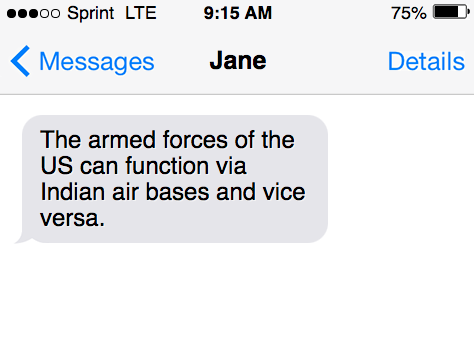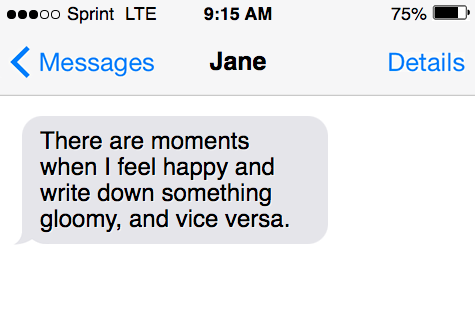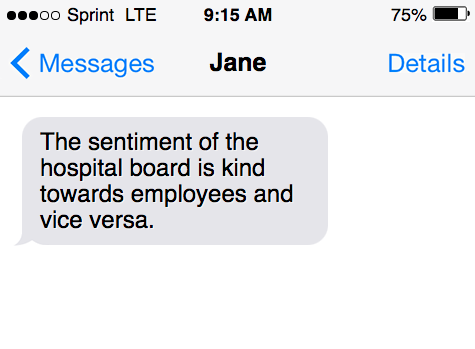What does “vice versa” mean? And how is it used in American English? This common idiom can get used broadly in English. It indicates someone making a type of trade-off. Or suggesting “one or other other.”
Learn what “vice versa” means in this worksheet…
What does “vice versa” mean?
Several phrases in the English language are derived from Latin. Vice versa is one of these phrases. And is extensively used to mean “an opposite way.” The term often represents an adverb and does not require a hyphen. You don’t have to write it in italics or frame it with quotation signs, except if you are referring to the phrase in and of itself.
| Phrase | Definition |
| Vice versa (adverb) /ˌvīs(ə) ˈvərsə/ | with the main items in the preceding statement the other way around. |
Regularly called a “loan word” in the English language, as many words are (like bagels, noodles, jazz, etc.), vice versa may have wandered into English from somewhere else, but is used in its originally intended form. Among other phrases like “ad hoc” and “et cetera,” vice versa is a phrase that has no meaning of the word “vice” in it. It is much like we use “vice” in vice-president.

The word “vice” originates in the Latin “vicis“. This Latin word means “change”, “alteration”, or “position”. The word “versus” is where “versa” comes from. The meaning of this is “turn”. Consequently, when the two Latin words are blended, the phrase can have the literal translation of “the position or the place turned”.
How is “vice versa” used?
As the term is two words long, it is called an “adverbial phrase.” This means that the role it plays is that of an adverb. Making use of conjunctions such as “or” and “and,” it can also be made use of with the word “not.” If you use it with “not,” you may say something that means “not another way around.”
Vice versa should ideally be used if you wish to express something true and authentic. This is so even in an order opposite to that said or written. In a basic example, if you wish to express a dislike for a particular person, you could say:
I dislike Susan, and vice versa.
Here, vice versa has been put in italics only to emphasize its use in a sentence and highlight it.
How to use “vice versa” improperly
When you use vice versa in any sentence or phrase, the subject takes the place of the object, and the object turns into the subject.
When you say the following:
I hate dogs, and vice versa.
You are saying that you hate dogs and dogs hate you right back. When you use the term “vice versa” in normal ways, in any form of writing, it is not proper to highlight it. Consequently, you should not put the phrase in any quotation marks or in italics.

Using a hyphen between the two words would also mean improper use of the phrase. Additionally, the phrase is never written in uppercase and always appears as separate words.
Examples of “vice versa” in sentences
To understand the appropriate use of vice versa in real life and writing, here are some examples to set you right:
- The armed forces of the US can function via Indian air bases and vice versa.
- There are moments when I feel happy and write down something gloomy, and vice versa.
- The sentiment of the hospital board is kind towards employees and vice versa.
- He shows her a lot of love and affection, and vice versa.
How is “vice versa” pronounced?
While using vice versa in speech, most people place an “a” sound between the two words. This is not technically the correct way to say this phrase.
The right way to say vice versa is something that goes like this:
vice ver ser (note that there is only a single syllable in “vice”).
Colloquially, you may hear this being pronounced as “vy ser ver ser” with two syllables being sounded in each word.
Some experts claim that the Latin language originates from, had no soft sounds for letters, so the soft sound of the consonant “c” is an English alteration.
Is it “vise versa” or “vice versa” or “visa versa”?
The entirely correct version of this phrase is vice versa, although many folks mistake it for similar sounding words like “visa” and spell it with an “s” in some cases.

What is the correct spelling of “vice versa”?
The phrase vice versa is primarily used to state that something you have just spoken of is true in an order opposite to what you have said. The correct spelling of the adverbial phrase is vice versa. Here is the correct spelling in a sentence:
The cruise ship sails from Aswan to Cairo, or vice versa.
| Word | Spelling |
| Vice versa | Correct |
| Vise versa | Incorrect |
Vice versa synonyms
There are many words in the English language that can effectively be used to either mean the same thing or the opposite of certain other words. Synonyms are similar words, in meaning, to original words that they may replace.
Vice versa has specific synonyms that may replace the phrase. These are:
- Contrary
- Conversely
- Contra
- Again
- Backward
- Contrariwise
- The opposite way
- The other way round
- In reverse as well
You may also use words like mutually and, in some cases, reciprocally. The best way to use vice versa when you want to state something is natural in the opposite way is to use vice versa. The phrase conveys your actual meaning appropriately and efficiently.
Sources
- How Should I Use Vice Versa? | Grammarly
- VICE VERSA | meaning, definition in Cambridge English Dictionary
- Vice versa – definition of vice versa by The Free Dictionary
- Vice versa definition and meaning | Collins English Dictionary (collinsdictionary.com)
Inside this article
Fact checked:
Content is rigorously reviewed by a team of qualified and experienced fact checkers. Fact checkers review articles for factual accuracy, relevance, and timeliness. Learn more.
Core lessons
Glossary
- Abstract Noun
- Accusative Case
- Anecdote
- Antonym
- Active Sentence
- Adverb
- Adjective
- Allegory
- Alliteration
- Adjective Clause
- Adjective Phrase
- Ampersand
- Anastrophe
- Adverbial Clause
- Appositive Phrase
- Clause
- Compound Adjective
- Complex Sentence
- Compound Words
- Compound Predicate
- Common Noun
- Comparative Adjective
- Comparative and Superlative
- Compound Noun
- Compound Subject
- Compound Sentence
- Copular Verb
- Collective Noun
- Colloquialism
- Conciseness
- Consonance
- Conditional
- Concrete Noun
- Conjunction
- Conjugation
- Conditional Sentence
- Comma Splice
- Correlative Conjunction
- Coordinating Conjunction
- Coordinate Adjective
- Cumulative Adjective
- Dative Case
- Determiner
- Declarative Sentence
- Declarative Statement
- Direct Object Pronoun
- Direct Object
- Diction
- Diphthong
- Dangling Modifier
- Demonstrative Pronoun
- Demonstrative Adjective
- Direct Characterization
- Definite Article
- Doublespeak
- False Dilemma Fallacy
- Future Perfect Progressive
- Future Simple
- Future Perfect Continuous
- Future Perfect
- First Conditional
- Irregular Adjective
- Irregular Verb
- Imperative Sentence
- Indefinite Article
- Intransitive Verb
- Introductory Phrase
- Indefinite Pronoun
- Indirect Characterization
- Interrogative Sentence
- Intensive Pronoun
- Inanimate Object
- Indefinite Tense
- Infinitive Phrase
- Interjection
- Intensifier
- Infinitive
- Indicative Mood
- Participle
- Parallelism
- Prepositional Phrase
- Past Simple Tense
- Past Continuous Tense
- Past Perfect Tense
- Past Progressive Tense
- Present Simple Tense
- Present Perfect Tense
- Personal Pronoun
- Personification
- Persuasive Writing
- Parallel Structure
- Phrasal Verb
- Predicate Adjective
- Predicate Nominative
- Phonetic Language
- Plural Noun
- Punctuation
- Punctuation Marks
- Preposition
- Preposition of Place
- Parts of Speech
- Possessive Adjective
- Possessive Determiner
- Possessive Case
- Possessive Noun
- Proper Adjective
- Proper Noun
- Present Participle
- Prefix
- Predicate



